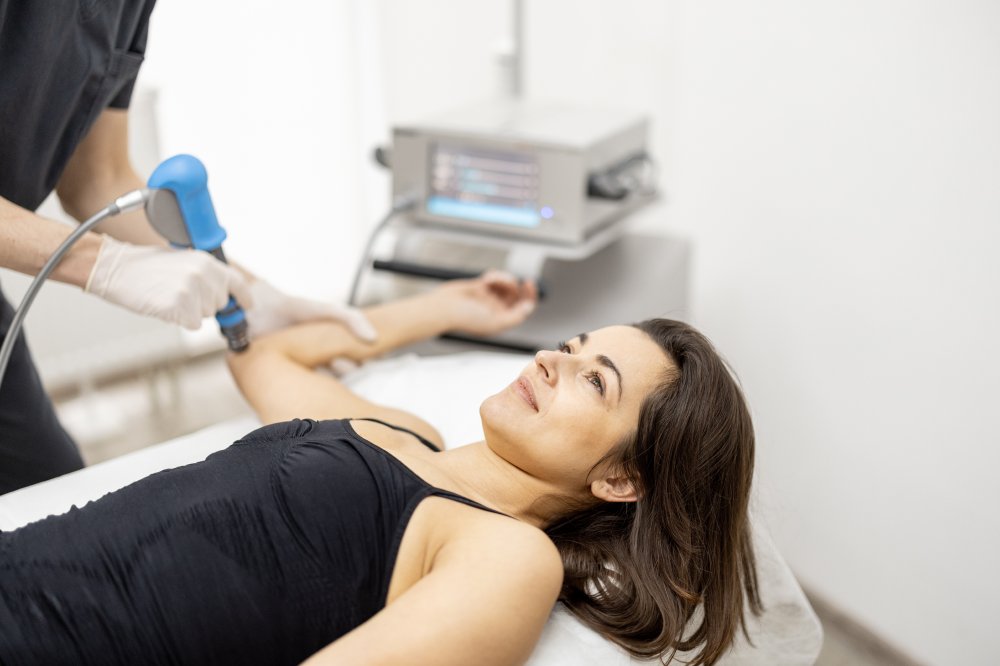The healthcare system is complicated. Healthcare professionals and institutions serve patients from different regions, backgrounds and with different finances. But every human has the right to receive healthcare services.
What does FQHC stand for?
FQHC is an acronym for Federally Qualified Health Centers.
In this article, we are going to take an in-depth view of FQHCs. We will look at what they are, their purpose, the regulations they work under and FQHCs billing.
Consider this article your FQHC fact sheet.
But before we go any further: what is FQHC health care?
What is FQHC?
Let us look at the technical definition of a FQHC facility. To make it to the FQHC list, organizations must satisfy one of the following criteria:
a) Receives grants under Title 42, Chapter 6A, Subchapter II, Part D, subpart I, section 254b of the U.S. Code. This is what was previously referred to as Section 330 of the Public Health Services Act.
b) Is a recipient of grants based on Health Resources and Services Administration (HRSA) recommendations under the Public Health Service, so that it meets the minimum requirements for such a grant.
c) A tribe-based institution that offers outpatient services as described in the Indian Self-Determination Act. Such an organization should voluntarily choose to be classified as an FQHC.
The Purpose of FQHC
The purpose for the creation of FQHCs in 1991 was to allow underserved communities in rural and urban America to access healthcare.

As such, FQHCs act as safety net providers.
Examples of FQHCs are public housing centers, community health centers and outpatient healthcare programs under the Indian Health Service funding as well as programs for the homeless and migrants.
What Makes the FQHC is Unique?
The uniqueness of the FQHC lies in the fact that it’s only reimbursed for the allowed service encounters. FQHC isn’t defined by the scope of coverage in which it is paid.
And that’s not all…
Whether or not an organization is classified as an FQHC is a decision by the organization itself. It is only the facilities that are allowed by the FQHC that can take part in FQHC.
Usually, FQHC organizations receive encounter payments such as supplies, healthcare services and service coordination offered to the agency’s customers.
On the other hand, DHHS-designated non-participating FQHCs are reimbursed on the grounds of fee-for-service.
What are the Defining Characteristics of FQHCs?
There are a couple of FQHC requirements that designated healthcare facilities should abide by.
FQHCs are supposed to offer primary care services on every lifecycle stage and provide preventive dental care. If not, they should have an arrangement with other providers to do so.
FQHCs should also have admitting privileges at local hospitals. If not, they should have a hospital plan that ensures care continuity for all patients.
Here’s why:
From a billing perspective, Medicaid and Medicare FQHC reimbursement follows an all-inclusive model.
Nonetheless, there are exceptions where the billing of services is done separately. In such cases, the right codes and documentations should be provided.
What FQHCs Are Required to Do as They Deliver Services
According to FQHC guidelines, the following should be followed by
FQHC-designated organizations.

First, FQHCs should gather 20% coinsurance under Medicare in the appropriate circumstances. There are no applicable Part B deductibles.
Second, FQHCs should offer care after the normal operating hours. These services can be offered by FQHC providers or via an after-hours arrangement.
Third, FQHCs should use a sliding fee scale that is subject to federal poverty directives.
But here is the bottom line:
Even though the reimbursement of FQHCs by Medicare and Medicaid is by an all-inclusive rate, the claim forms should be submitted with the correct HCPCS and CPT. Otherwise, it will lead to a claim denial.

FQHC Staffing Requirements
The FQHC should operate under the a physician’s medical direction. In other words, FQHCs should have healthcare staff that has at least one physician.
Additionally, the facility must have a doctor’s assistant, advanced registered nurse practitioner, clinical social worker, midwife, or clinical psychologist.
These professionals provide patient care services based on their competencies as long as the FQHC operates.
Here’s the deal:
The facility should have enough personnel for the proper functioning of the FQHC.
How Can an Organization Enroll as an FQHC Provider?
If an organization would like to become an FQHC and be reimbursed for its services, it should:
Submit a signed Core Provider Agreement (CPA) document.
The organization should also be compliant with the federal, local and state laws, regulations, agreements and rules.
How to Verify the Patient’s Eligibility for FQHC Services
It is important for providers to verify that the patient has the right coverage for the date of service. Also important is to ascertain that each patient’s benefit package contains the service they need.
Why is this important?
Because it protects the organization from giving services for which it may not be reimbursed.
Are clients who are part of in Agency-Contracted Managed Care Organization (MCO) eligible?
Basically, yes. Majority of the patients eligible for Medicaid are enrolled in one of the agency’s contracted MCOs.
For such patients, managed care enrollment is displayed on the benefit enquiry screen in ProviderOne.
Services Not Classified as Encounters in FQHC
Several services are not classified as encounters, and as such are not eligible for reimbursement.
The first service type that does not qualify includes lab tests, blood draws, and prescriptions. Nonetheless, such services are issued in conjunction with other eligible healthcare services during encounters.
Another type of service that does not qualify as an encounter is drug or biological administration. This is inclusive of influenza, pneumococcal as well as other immunizations.
The third kind of service that doesn’t qualify as an encounter is the delivery of postnatal services given to expectant undocumented alien women. Global care is unbundled in this case, meaning that the agency doesn’t pay for delivery or postpartum care.
The fourth service that does not qualify as an encounter is health services offered to clients classified as state-only.
Activities Not Covered by FQHC Agencies
There are certain situations that aren’t covered by the agency. This means that they cannot be listed as encounters for reimbursement purposes.

A good example is taking part in group or community sessions that aren’t designed for healthcare service provision. These include high school classes, health presentations to community groups and informational presentations on available FQHC services.
The second FQHC-related activity not covered by the agency are health services that are offered on a large scale. These include screening programs, mass immunizations, and community-wide programs like health fairs.
Are FQHCs Liable for Received Payments?
Every FQHC has the responsibility to submit service claims offered to qualified clients. Besides, claim submissions should be based on billing instructions and rules that prevail at the time of service delivery.
What is FQHC billing like?
Every FQHC remains liable for received payments, ensuring that every payment is for the services listed in program-specific billing guides as well as state and federal laws.
According to the Medicare FQHC billing manual FQHC claims should be audited by the agency. FQHCs should repay any overpayments.
Also, the FQHCs should be able to provide the agency with complete and legible records. These records should show all services for which payment was issued to the FQHC.
How Agencies Can Prevent Duplicate Payments for BHO and Pharmacy Services
Agencies normally conduct harmonization for all pharmacy services offered by FQHCs. This helps prevent double payments for pharmacy services that are listed as part of their encounters.
Now:
Specific to FQHCs with BHO contracts, agencies conduct monthly harmonization based on the contract amount, or what is issued to the FQHC by BHO for all FQHC customers.
The agency then goes through the records with the FQHC to reconcile all the records for the previous period and ensure that clinics are fully reimbursed.
Change in Scope Service and How it is Requested
Change in scope services arises due to changes in service intensity, type, duration or volume of service offered by the FQHC varies. In the event of such changes thanks to certain criteria, then the FQHC may qualify for an adjustment for the service rate.
How does an organization request for a change in scope of service?
Either the FQHC or the agency requests for a change in scope service rate adjustment. Such a change may be requested by the agency at any time.
However, the application must be accompanied by a position statement which asserts whether or not the FQHC’s rate of payment system should rise or fall based on the service whose scope has changed.
The position statement and cost report should be submitted in under 90 days after receiving the application from the agency.
The agency will then review both reports from the FQHC, the position statement and the change application based on specific criteria.
The agency can only ask for a maximum of one change in scope service rate adjustment annually.
Specifics of FQHC Medical Billing
The following are some of the common FQHC billing scenarios as well as the applicable guidelines.
FQHC Encounters
Face to face encounters between patients and physicians, physician assistants, nurse practitioners, clinical physicals, nurse midwives, and clinical social workers may be billed based on a number of conditions.
Examples of face to face encounters include diagnoses, surgery, consultation and therapy. The following are the applicable conditions:
First, the patient-caregiver encounter should take place in an outpatient setting. This is inclusive of Part A stay in a skilled nursing facility.
Second, a Commission on the Status of Women (CSW) or Center for Primary Health Care (CP) may not submit bills for the patient’s family members. They can only bill for the services offered to the patient themselves.
Third, if the patient and caregiver have several encounters on the same day, the healthcare provider should bill it as a single unit.
I’m not going to lie to you:
If a non-physician provider serves the patient, then they can only be billed if the non-physician is in the hospital’s employ. Besides, the services should be covered by Medicare if provided by a physician. Also, state law should allow non-physicians to provide such services.
Preventive Services
The following are some of the preventive services billable by FQHCs.
First, an initial physical preventive exam such as electrocardiogram (ECG), patient counseling and end of life planning should be provided. However, the patient counseling should be provided after reception of results.
Second, the patient should receive an annual wellness visit inclusive of family history updates, vital signs and an assessment of health risks.
Third, preventive screenings should include a colorectal, prostate, diabetes, pelvic exam, pap smears and mammograms.
Telehealth Services
FQHCs can bill for telehealth services based on face-to-face encounters for these services only if the system provides for real-time two-way communications.
Look:
Telehealth service include consultations, medication management, group or individual medical nutrition therapy, office visits, individual psychotherapy and neurological exams.
Medical Nutrition Therapy and Diabetes Self-Management
Registered nurses and dieticians can offer appropriate services subject to the following conditions:
First, the services cannot be billed in a group setting. Remember that group services cannot be classified as face-to-face encounters.
Second, Medical nutrition therapy and group Diabetes Self-Management Training (DSMT) sessions are part of the all-inclusive FQHC rate.
Medical nutrition therapy and individual DSMT sessions may be billed separately and payments made in addition to qualifying visits.
FQHC Services that Aren’t Covered
There are products and services that are not eligible for FQHC reimbursement. The following are some, but not all of them:
- Arms, legs and eye prosthetics
- Technical components of bone density exams, mammograms or other cancer screening tests
- Hospital-provided services
- Back, leg, neck and arm braces
Conclusion
This article has been an in-depth study of FQHCs, FQHC billing services, FQHC billing guidelines, what they are allowed to bill, what they cannot bill, why the exist and the requirements under local, state and federal laws.
FQHCs play a critical role in the delivery of healthcare services to underserved and underprivileged rural and urban communities. It is no surprise the FQHC has received widespread bipartisan support.
In case you have any question on how to bill for FQHCs, call us to get a free consultation today. We have certified billing and coding staff who can assist you find ways of increasing reimbursements under the law.
Also, let us know whether this article has been helpful. Has it widened your understanding about FQHCs? Are there questions that we didn’t answer but you wish we would? Let us know in the comments section below.








